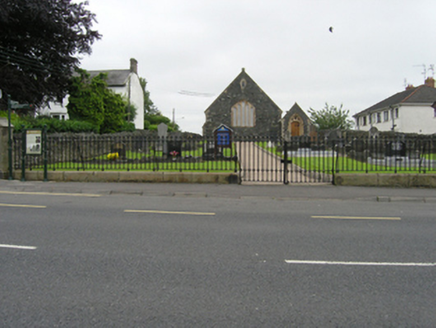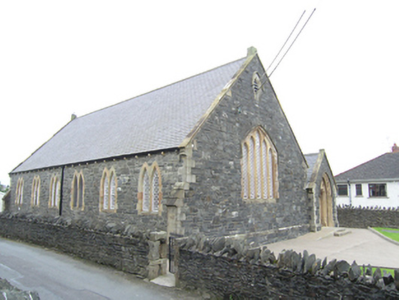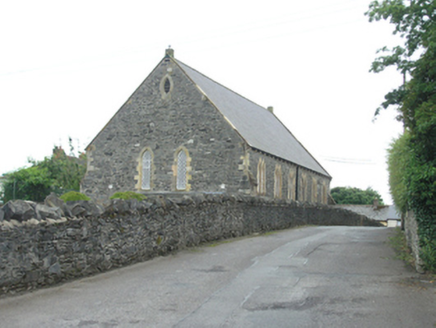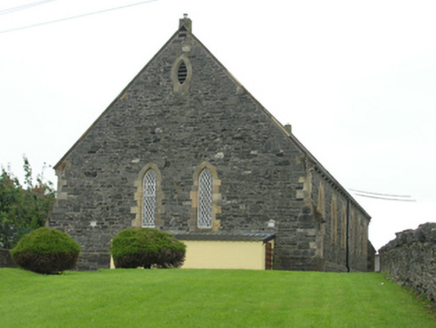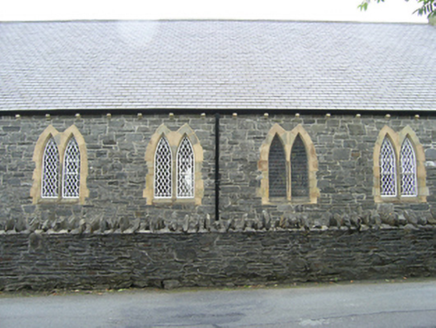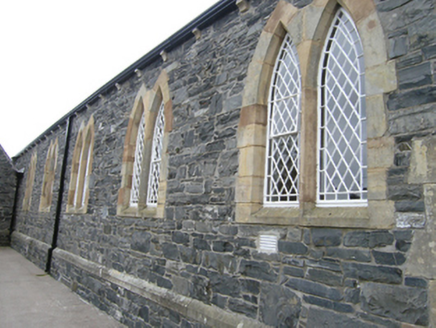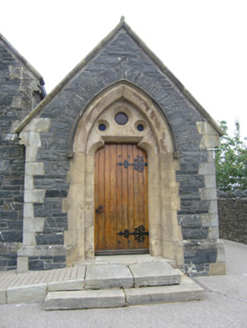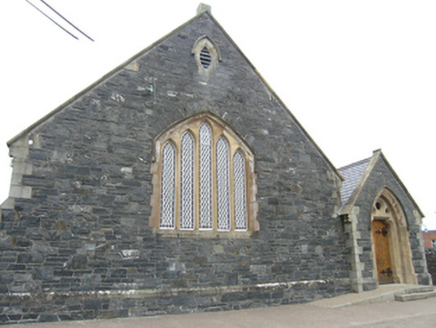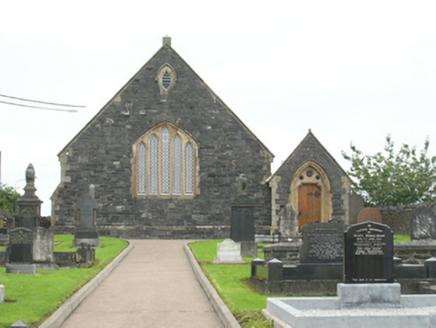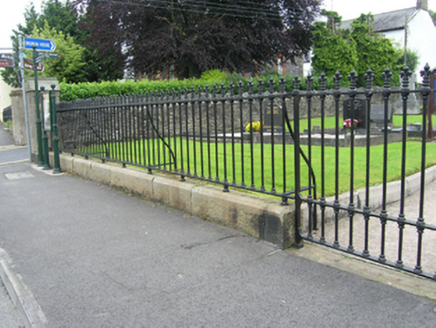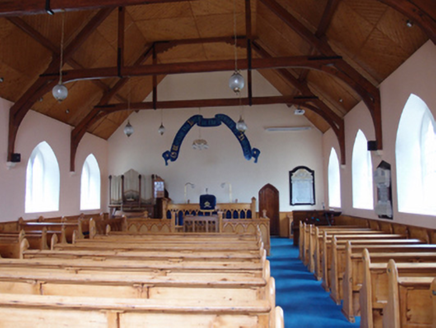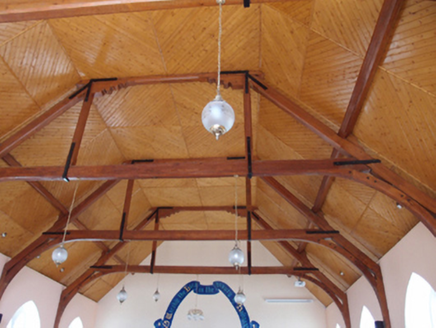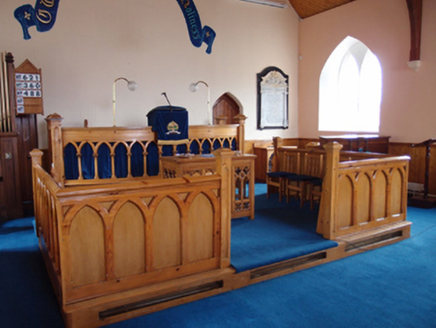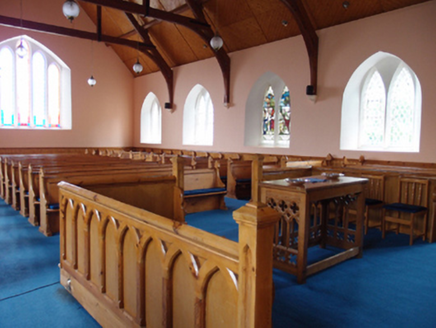Survey Data
Reg No
40308018
Rating
Regional
Categories of Special Interest
Architectural, Artistic, Social
Previous Name
Cootehill Presbyterian Meeting House
Original Use
Church/chapel
Date
1875 - 1880
Coordinates
260024, 314256
Date Recorded
05/07/2012
Date Updated
--/--/--
Description
Freestanding gable-fronted single-cell double-height Presbyterian church, built 1877, entrance porch attached to east of south gable, six-bay nave, recent lean-to to north gable. Replacement pitched slate roof, clay ridge tiles, oversailing barges to gables on ogee kneelers, cut-stone chimneystacks, corbel table supporting cast-iron gutters. Pitched slate roof to entrance porch with barges, finials, and ogee kneelers. Roughly coursed rubble stone walls over plinth course, ashlar stone quoins over half-height ashlar faced buttresses. Front gable having a five light graduated dressed sandstone lancet composition with diamond pane latticing to lights having margin panes, stone-dressed mandala-shaped ventilator above to gable. Entrance comprising flat-headed shoulder arch doorway with cusped corbels and plate tracery in the tympanum with an ‘1877’ date carved, having hood moulding with label stops. Timber sheeted door with decorative ironmongery. Paired lancets to side elevations dressed in ashlar quality sandstone, diamond pane timber windows with margins and ventilators, one pair with stained glass windows. North elevation having pair of lancets with stone dressed mandala-shaped ventilator to gable. Interior with open timber roof with wall posts rising from corbels, arch braces to trusses, and queen posts with decorative join to collar. Historic furnishings recently refinished. Elders’ meeting room in end bay. Timber sheeted doorways to either side of pulpit. Set in burial ground behind centrally placed gate and railings on hammer dressed plinth course. Square-profile masonry end piers with decorative cap stone. Coursed rubble side boundary walls with Scotch coping. Cast-iron pedestrian gate west of main gable.
Appraisal
A finely constructed Gothic Revival Presbyterian church with crisp carved stone detailing, possibly designed by John Boyd. It replaced a Presbyterian meeting house that had been on the site from 1728. The graduated lancet composition in the west gable and the entrance porch door with plate tracery to tympanum are well executed and give the composition a formal yet inviting presence on Bridge Street. The interior retains its historic furnishings which add artistic interest to the building, being the work of skilled craftsmen. Presbyterians were drawn to south Ulster in great numbers in the early eighteenth century by the development of the brown linen manufacturing trade, which was especially promoted in Cootehill by the Cootes of Bellamont Forest. In Lewis’ Topographical Dictionary for 1837 he noted that there were two Presbyterian meeting houses in Cootehill, one on this site and the other at Meeting House Square.
